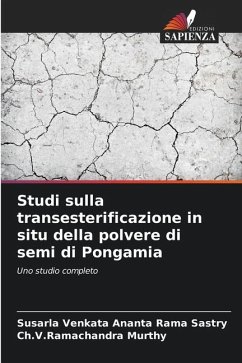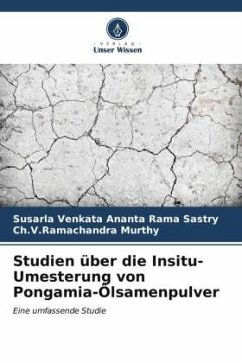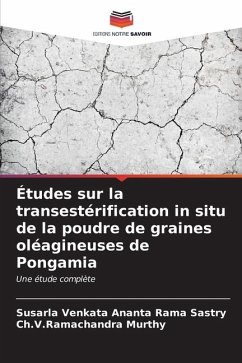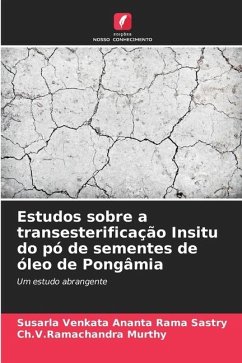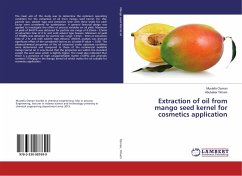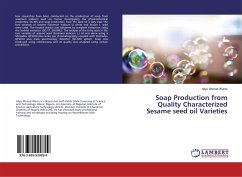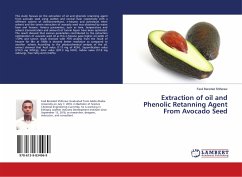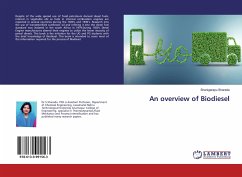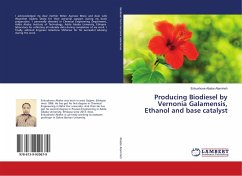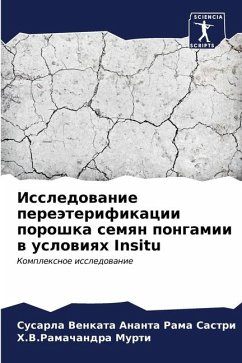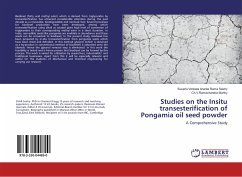
Studies on the Insitu transesterification of Pongamia oil seed powder
A Comprehensive Study
Versandkostenfrei!
Versandfertig in 6-10 Tagen
24,99 €
inkl. MwSt.

PAYBACK Punkte
12 °P sammeln!
Biodiesel (fatty acid methyl ester) which is derived from triglycerides by transesterification has attracted considerable attention during the past decade as a renewable, biodegradable and nontoxic fuel. Several processes for biodiesel production have been developed, among which transesterification using alkali as catalyst gives high level of conversion of triglycerides to their corresponding methyl ester in a short duration. In India, non-edible seeds like pongamia are available in abundance and these seeds can be converted to biodiesel. In the present study, biodiesel has been prepared by in...
Biodiesel (fatty acid methyl ester) which is derived from triglycerides by transesterification has attracted considerable attention during the past decade as a renewable, biodegradable and nontoxic fuel. Several processes for biodiesel production have been developed, among which transesterification using alkali as catalyst gives high level of conversion of triglycerides to their corresponding methyl ester in a short duration. In India, non-edible seeds like pongamia are available in abundance and these seeds can be converted to biodiesel. In the present study, biodiesel has been prepared by in-situ transesterification from pongamia seeds which have been dried and dehulled. In this method glycerol (which is obtained as a by-product in conventional method of biodiesel) is adsorbed onto the oilseeds. Hence the glycerol removal step is eliminated. In this work the feasibility is tested and is hence proven that biodiesel can be formed by this process. This work is aimed for utilization by researchers, industrialists' and traditional businesses. Apart from this it will be especially relevant and useful for the students of Mechanical and Chemical engineering for carrying out research.



